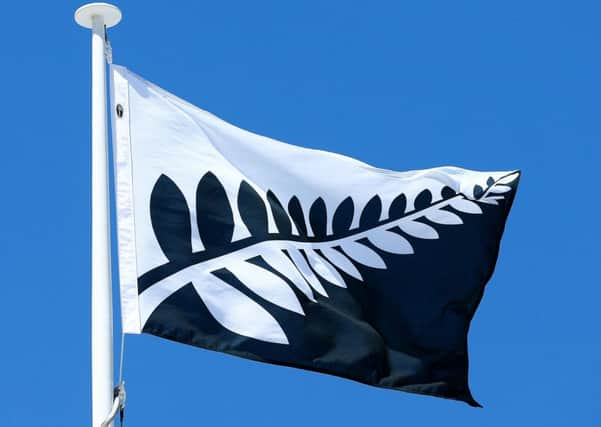New Zealand begins voting for new national flag


New Zealanders have just under a month to send in a postal ballot on which of five potential new flags they prefer.
A second vote in 2016 will ask whether they want to replace the existing flag, which features the UK’s Union flag, with the new design. Prime Minister John Key has said the current flag is not representative of modern New Zealand.
Advertisement
Hide AdAdvertisement
Hide AdBut has admitted that polling indicates most New Zealanders would rather keep it.
Key sees the current flag, with the Union flag in the corner, as an anachronism, arguing the country needs a standard “that screams New Zealand”.
He has also expressed frustration that the flag – which features four red stars representing the Southern Cross on a dark blue background – is frequently confused with Australia’s.
The Flag Consideration Panel received 10,292 entrants to its nationwide design competition.
Not all were entirely serious, though some of the rejected designs – including Laser Kiwi – gained something of a cult following. Four designs were on the shortlist announced in September, but there was criticism that they were too similar or uncreative. Three featured a fern design and the fourth the curving koru Maori symbol.
After a social media lobbying campaign, the government changed the rules so a fifth design, Red Peak, also made the final cut. To help people decide, the five flags are being put on display across the country.
Sets of flags are being given out free to communities who have five suitable flagpoles to display them from, so the public can see them in “real-life situations”.
New Zealand was once part of the British empire, and while it is now independent, the Queen remains head of state. Her status is seen as largely symbolic, and the monarchy considered a colonial relic.